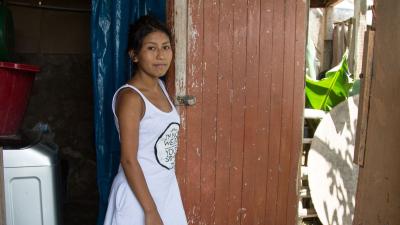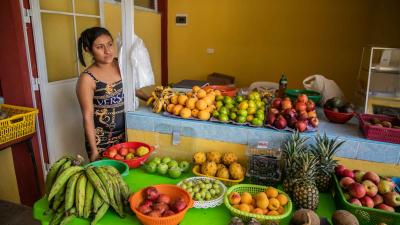The Covid-19 pandemic worsened mental health conditions around the world with women, young people and economically disadvantaged groups being particularly vulnerable.
In Peru, experiences of anxiety and depression among young women increased significantly during the crisis, exacerbated by social isolation, economic hardship and interrupted education. Despite some measures to improve mental health care, access to support remained very limited, particularly in rural areas. The pandemic acted as a catalyst of numerous underlying vulnerabilities to mental health issues, related to socio-economic and gender inequalities, alongside individual past traumas.
Two young Peruvian women, Aurora from an urban community and Daniela, from a rural community, share their mental health experiences before, during, and after the pandemic. Their stories highlight the urgent need for increased investment in mental health services and care and the importance of addressing socio-cultural barriers to promote resilience, support recovery, and protect young people’s mental health.
***Content warning: These stories contain references to suicidal feelings, violence, alcoholism, eating disorders and difficulties during pregnancy/birth and the death of a sibling.***
Click on the image to read Aurora's story.
Click on the image to read Daniela's story.
Read the study based on Aurora's and Daniela's experiences (in Spanish) The pandemic and mental health: A study based on the lived experiences of vulnerable young Peruvian women.
You can also read preliminary findings on young people's mental health from the seventh round of the Young Lives survey conducted in 2023–24 in the report Young People’s Mental Health in Unprecedented Times: Research Report from Round 7 in Ethiopia, India and Peru.
The Covid-19 pandemic worsened mental health conditions around the world with women, young people and economically disadvantaged groups being particularly vulnerable.
In Peru, experiences of anxiety and depression among young women increased significantly during the crisis, exacerbated by social isolation, economic hardship and interrupted education. Despite some measures to improve mental health care, access to support remained very limited, particularly in rural areas. The pandemic acted as a catalyst of numerous underlying vulnerabilities to mental health issues, related to socio-economic and gender inequalities, alongside individual past traumas.
Two young Peruvian women, Aurora from an urban community and Daniela, from a rural community, share their mental health experiences before, during, and after the pandemic. Their stories highlight the urgent need for increased investment in mental health services and care and the importance of addressing socio-cultural barriers to promote resilience, support recovery, and protect young people’s mental health.
***Content warning: These stories contain references to suicidal feelings, violence, alcoholism, eating disorders and difficulties during pregnancy/birth and the death of a sibling.***
Click on the image to read Aurora's story.
Click on the image to read Daniela's story.
Read the study based on Aurora's and Daniela's experiences (in Spanish) The pandemic and mental health: A study based on the lived experiences of vulnerable young Peruvian women.
You can also read preliminary findings on young people's mental health from the seventh round of the Young Lives survey conducted in 2023–24 in the report Young People’s Mental Health in Unprecedented Times: Research Report from Round 7 in Ethiopia, India and Peru.



